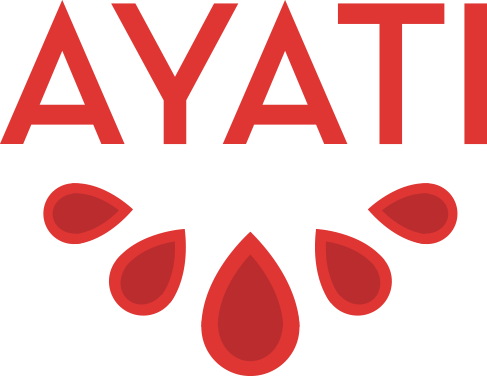AYATI is a nonprofit organization with a mission to educate girls in rural India about optimal hygienic practices and provide the proper materials to help them lead better lives.
AYATI = DIGNITY
BRIDGE THE GENDER GAP
IN THE SUMMER OF 2013, AN ARTICLE IN BLOOMBERG SPARKED A DISCUSSION ABOUT THE LACK OF RESOURCES IN INDIA FOR YOUNG WOMEN AND GIRLS TO MANAGE MENSTRUATION. WE FOUND IT HARD TO BELIEVE THAT IN TODAY'S WORLD SUCH A BASIC AND UBIQUITOUS NEED WAS NOT MET FOR SO MANY. WE DECIDED WE NEEDED TO MAKE A DIFFERENCE, AND THUS WE FOUNDED AYATI.
AYATI MEANS DIGNITY IN SANSKRIT. WE WANT EVERY GIRL TO HAVE DIGNITY AS SHE GOES THROUGH LIFE WITHOUT THE SHADOW OF TABOOS AND TO HAVE EVERY OPPORTUNITY TO SUCCEED. PLEASE JOIN US IN MAKING A DIFFERENCE!
"Change starts one person at a time, one school at a time, one neighborhood at a time, one community at a time." -Barack Obama
Read about our program on page 48 of the report here.
On average, a woman will menstruate for 3,000 days throughout her lifetime. That is over 8 years spent without the proper hygienic materials to comfortably live.
Up to 89% of women in rural India use cloth and other materials like ash, sand or leaves to absorb their menstrual blood. The majority of those women use the same cloth throughout their cycle.
Women in rural India not only lack the proper resources, but also lack awareness and access to hygienic education. For generations, Indian women are taught that they are impure while menstruating and often endure embarrassment, infection, and loss of workdays due to the negative social stigmas and discomfort associated with their periods.
Reproductive tract infections are 70% greater among women who lack access to hygienic supplies. These women are subject to health risks such as urinary tract infections, rashes and complications during pregnancy.





